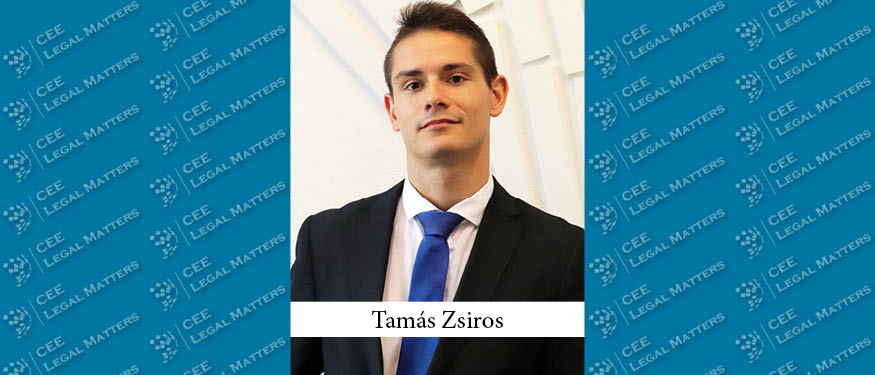In Latvia, the termination of employment relationships for labor union members is specifically regulated to protect their rights. However, in practice, this regulation creates significant challenges for employers, as labor unions almost always refuse to grant consent for dismissal.
Serbia: The Right of Employees to Compensation for Commuting Costs in Light of New Challenges
The year 2025 began with a development that raised important questions regarding the interpretation of the Serbian Labor Law, specifically concerning employees’ right to compensation for commuting costs.
Ukraine: Top 5 Practical Problems of Transfer of Undertaking Rules
It has been almost a year since Ukraine introduced rules regarding the protection of employees in the case of a transfer of a business entity to its Labor Code in accordance with Law No. 3677-IX (Rules). The Rules entered into force on May 15, 2024, and aimed at approximating national legislation to the Transfers of Undertakings Directive 2001/23/EC of March 12, 2001. Even though local businesses continue testing this new legislation in practice, the area still remains terra incognita for many practitioners. Now that some time has passed, it is possible to summarize the major practical imperfections of the Rules.
North Macedonia: Outsourcing – Employment Issues
Outsourcing involves a transfer by a business (customer) to a third party (supplier) of the operational responsibility for the provision of a distinct business function, process, or service. Given the inherent transfer of responsibility, many outsourcing arrangements involve a transfer to the supplier of those employees who were engaged by the customer in the activity that is being outsourced. Macedonian law does not specifically regulate outsourcing transactions. Nonetheless, the Macedonian Law on Labor Relations 2005 (Labor Law) is harmonized with the EU Transfer of Undertakings Protection of Employment Directive 2001/23/EC of 12 March 2001 (TUPE) and, therefore, applies to the transfer of employees both on the initial outsourcing and on any subsequent or second-generation outsourcing.
New Rulebooks and Approaching Deadlines for the Harmonization of the Organizing of Games of chance with the Law on Games of Chance
The Law on Amendments and Supplements to the Law on Games of Chance, adopted by the end of 2024 and applied as from 6 January 2025, has brought several important changes and new legal solutions that have arisen from the needs of practice and market development. In addition to harmonizing the text of the law with the technological development in this area, the amendments to the law introduced new obligations for organizers and a significant increase in fees for obtaining approval and for organizing games of chance.
Amendments to Hungarian FDI Control Regime
Significant amendments to Hungary's foreign direct investment (FDI) control regime entered into force on 24 June 2025, introducing expanded pre-emption rights for the state and revised procedural timelines.
EBA No Action Letter
After the European Commission’s letter in December 2024, which identified the risks of regulatory arbitrage stemming from diverging interpretations, risks that we also encounter in practice, the European Banking Authority (“EBA”), in its outlook, called for no immediate action regarding the PSD2’s applicability to services related to electronic money tokens (“EMTs”). On 10 June 2025, the long-awaited Opinion of the EBA (the “EBA No Action Letter”) on the interplay between Directive 2015/2366 (“PSD2”) and Regulation 2023/1114 (“MiCA”) in relation to crypto-asset service providers (“CASPs”) that transact in EMTs was finally published.
CbC Reporting for Companies in U.S.-Headquartered Multinational Enterprise Groups: First Reporting FY2024
Ukrainian taxpayers operating within multinational enterprise groups (MNEs) with consolidated annual revenues exceeding EUR 750 million may, for the first time in 2025, be required to independently file Country-by-Country (CbC) reports. This applies in particular to companies that are part of MNEs with a U.S.-based ultimate parent entity.
Price Ranges as a Cartel Agreement? Association Fined.
The Czech Office for the Protection of Competition fined the Association of Disinfection, Disinsection and Pest Control Workers of the Czech Republic for publishing, since 2016, so-called median prices for the provision of disinfection, disinsection and pest control services on its website.
New Law on the Protection of Local Identity
On 11 June 2025 the Hungarian Parliament adopted the proposal on the protection of local identity, essentially drafted to safeguard the interests of local communities in Hungarian municipalities, which was also published in the Hungarian Gazette on 16 June 2025.
Ukraine: Recent Updates in Plant Variety Rights Registration — New Opportunities for Right Holders
The Ministry of Agrarian Policy and Food of Ukraine has introduced several important changes in the field of plant variety rights protection that will facilitate registration for right holders.
From Bronze Night to NIS2: How the Baltics Are Implementing the EU’s New Cybersecurity Regime
In April 2007, Estonia made global headlines — not for a military conflict or natural disaster, but for one of the first coordinated large-scale cyberattacks against a nation-state. Sparked by the relocation of a Soviet-era war memorial in Tallinn (known as the Bronze Night), the country’s digital infrastructure was flooded with denial-of-service attacks. Government websites, banks, media outlets, and essential services were knocked offline. It was a wake-up call: digital threats could now paralyze a country just as effectively as tanks and missiles.
New Design Rules in the EU: Greater Protection, But Also Clearer Limits
May 1, 2025, brought significant changes to design protection in the EU. Here are three key updates no designer should overlook:
The Hungarian ESG Act Will Be Amended Once Again
On 17 June 2025, the Hungarian Parliament adopted a bill on the establishment of the central budget for 2026, which would amend several laws, including the Hungarian ESG Act.
Ukraine Competition Law Update | Key Developments Q2 2025
The below reforms are designed to support Ukraine’s commitments under the EU-Ukraine Association Agreement and aim to improve legal clarity, transparency, and accountability for the use of state aid.
New Legal Framework for the Protection of Collective Consumer Interests
The Ministry of Economic Development has conducted a public consultation on the draft Law on Class Actions. The primary reason for adopting a special law which regulates matters related to the collective protection of consumers is, above all, the harmonization of Montenegrin legislation with EU law, specifically with Directive (EU) 2020/1828 on representative actions for the protection of the collective interests of consumers and repealing Directive 2009/22/EC. The goal is to prevent and sanction mass violations of consumer rights by traders in the market, while also ensuring fair compensation for harmed consumers. In this text, we briefly present the most important amendments and innovations introduced by the draft Law on Class Actions.
Spring Tax Package 2025
The Hungarian Government’s Spring Tax Package adopted on 11 June 2025 introduced significant changes to tax legislation, aligning with international standards and strengthening domestic revenue strategies. The 91-page draft bill proposes multiple structural reforms to Hungary’s tax system. Several provisions previously regulated by Government decrees, such as the retail surtax and insurance tax, will now be incorporated directly into law. Additionally, new regulations are introduced and existing ones revised.
New Serbian Decree on Palm Oil Labelling Step Forward to Aligning with EU Standards
The Government of the Republic of Serbia recently adopted a Decree on Additional Requirements for Placing on the Market Products Containing Palm Oil, Palm Fat, or Other Vegetable Oils and Fats ("Official Gazette of RS", No. 47/2025), which entered into force on 7 June 2025 (“the Decree”).

































